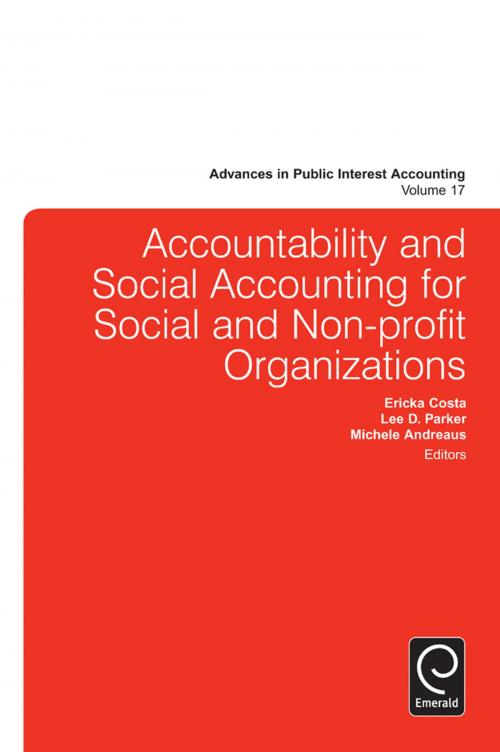Accountability and Social Accounting for Social and Non-profit Organizations
Business & Finance, Accounting, Financial| Author: | ISBN: | 9781784410049 | |
| Publisher: | Emerald Group Publishing Limited | Publication: | December 3, 2014 |
| Imprint: | Emerald Group Publishing Limited | Language: | English |
| Author: | |
| ISBN: | 9781784410049 |
| Publisher: | Emerald Group Publishing Limited |
| Publication: | December 3, 2014 |
| Imprint: | Emerald Group Publishing Limited |
| Language: | English |
Traditional economic and accounting theories focus on investor - owned enterprise which deal with the production of goods and services to maximise its economic value for shareholders. This book offers an alternative perspective. It focusses on non-profit organisations that produce goods and services with the intention of maximising social value for the broader community. Traditional accounting theories face limitations when dealing with these organisations as their bottom line is not based on the traditional model. Nonetheless, such entities have to consider economic and financial equilibrium as a requirement for long-term survival. Accordingly, this book presents research addressing three main subjects: the limitations of conventional accounting for nonprofit organisations, the meaning of accountability in relation to their broad scope remit; and the potential of social and environmental accounting for contributing to the accountability of social and non-profit organizations. After a description of different types of NPO organization, the authors analyse the performance measurement adopted by NPOs and propose the development of broader and multidirectional accountability models.
Traditional economic and accounting theories focus on investor - owned enterprise which deal with the production of goods and services to maximise its economic value for shareholders. This book offers an alternative perspective. It focusses on non-profit organisations that produce goods and services with the intention of maximising social value for the broader community. Traditional accounting theories face limitations when dealing with these organisations as their bottom line is not based on the traditional model. Nonetheless, such entities have to consider economic and financial equilibrium as a requirement for long-term survival. Accordingly, this book presents research addressing three main subjects: the limitations of conventional accounting for nonprofit organisations, the meaning of accountability in relation to their broad scope remit; and the potential of social and environmental accounting for contributing to the accountability of social and non-profit organizations. After a description of different types of NPO organization, the authors analyse the performance measurement adopted by NPOs and propose the development of broader and multidirectional accountability models.















